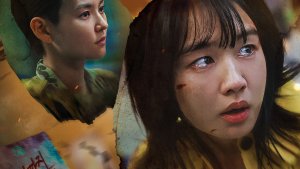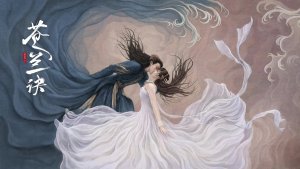 How to Make a Romantic Xianxia: Love Between Fairy and Devil
How to Make a Romantic Xianxia: Love Between Fairy and Devil
After learning about Xianxia and Wuxia dramas, we now arrive at: Xuanhuan dramas!
It is HIGHLY recommended that drama lovers read the introduction articles in this order to avoid confusion: (1st) Introduction to Xianxia Dramas (2nd) Introduction to Wuxia Dramas (3rd) Introduction to Xuanhuan Dramas (The 1st and 2nd articles provide in-depth explanations of cultivation, martial arts, vital energy/Qi, and more.) |
As we arrive in the modern era, where electronics are essential, and the internet is all the rage, Wuxia, Xianxia, and Xuanhuan dramas have slightly changed. It is not uncommon to see Xianxia elements in a Wuxia drama, Wuxia elements in a Xuanhuan drama, and the list goes on and on. Most people are unsure where the barrier that separates one genre from the other starts. In this article, you will be introduced to the Xuanhuan genre, be given some Wuxia vs Xianxia vs Xuanhuan comparisons, and be provided with some Xuanhuan drama/movie recommendations.
Note: When I was writing my Xianxia and Wuxia articles, I was not sure as to whether I would be writing a third intro article. Although it is listed as a Xianxia recommendation, Fights Break Sphere falls in the Xuanhuan category. (The reason for this is because Xianxia is more similar to Xuanhuan than Wuxia.)
Directly meaning Mysterious Fantasy, Xuanhuan (玄幻) is a special genre of Chinese fantasy involving magic, adventure, and some Western influence as well. As this genre is not as well known and understood as the other two genres, people commonly mistake Xuanhuan dramas for Wuxias or Xianxias. But in reality, although the Xuanhuan genre contains Wuxia and Xianxia elements, it is a different Chinese drama genre. Although Xuanhuan can't compete in the popularity contest, it has some amazing dramas.
Other names for Xuanhuan: Fantasy, Eastern Fantasy, Dongfang Xuanhuan.

As included above, Western influences play an important part in Xuanhuan dramas. As Chinese fantasy novels garnered more attention, many authors started adding new elements to their works, including Western and some other global influences. Out of these three Chinese genres, Xuanhuan is the newest, with its first novel published in 1994. A Step into the Past by author Huang Yi incorporated martial arts and ancient military details, as well as science fiction (time travel). Some settings have also leaned more towards the Western/Non-China world. Xuanhuan novels are all the rage now, with many people reading them online and even critics giving them high praises. Even Xuanhuan donghuas, or Chinese animations, are very popular, with quite a few having drama versions. Let's hope that Xuanhuan dramas will follow the same successful path.
Time travel is quite a difficult Cdrama topic to cover, though, as, after the ban, not many dramas could convey this as openly as they would have wanted to.
Another unique element in the Xuanhuan genre (not necessarily only dramas) is the special way of ranking. In the Heavenly Realm, Xianxia dramas may identify characters as Heavenly Emperor, Divine God, High God, High Deity, etc., but the ranking is much more laid out for Xuanhuan works. It's common to see people ranked or leveled out from level 1 to 10, and sometimes even higher. Power and rank in many Xuanhuan works are very important, both to the story and to the characters.

This genre and article will inevitably create some confusion and questions, the most prominent question most likely being: What is the difference between Xianxia and Xuanhuan?
Xuanhuan dramas are a mix of Chinese mythology and western influences, as mentioned before. Xuanhuan is very similar to Xianxia, as Xianxia has a very important role in the making of the Xuanhuan genre, but the most obvious differences are the lack of Daoism (also known as Taoism) and immortals, which always appear in Xianxia dramas. Daoism is one of the most important elements in a Xianxia work, as it is the roots for Yin and Yang.
Daoism is a Chinese philosophy that helps one navigate their purpose in life. Although it is not widely considered a religion, many people follow this philosophy, which was written by Lao Tzu.
Xianxia and Xuanhuan dramas both use spells and magic, but Xuanhuan dramas generally have less magic relating to Chinese mythology and a lot more western influence. (see pictures on the right) Cultivation is also prominent in Xuanhuan dramas, but these two genres look at cultivation in slightly different ways. While cultivators in Xianxia dramas may aim for immortality/to ascend to higher realms, cultivators in Xuanhuan dramas focus on increasing their powers to become the strongest. Cultivation in all three genres is also quite useful to stabilize unstable Qi in the body. (Qi is the vital force in a living being.) As seen on the right, the spirit beasts and spells in Douluo Continent look a little different from the typical spells and magical elements you would see in a Xianxia drama. | 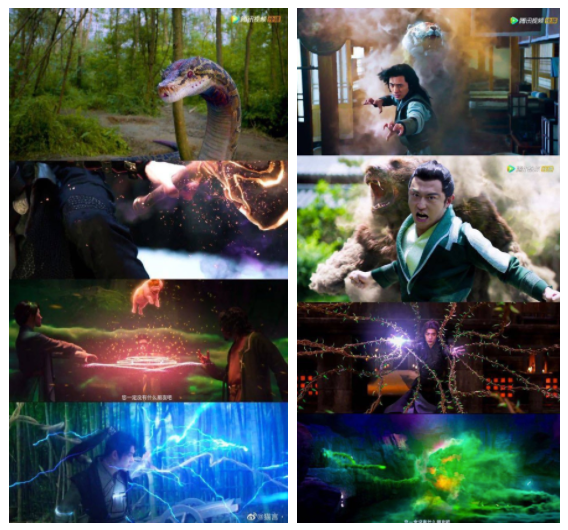 |
Xuanhuan Magic/Spells: | ||
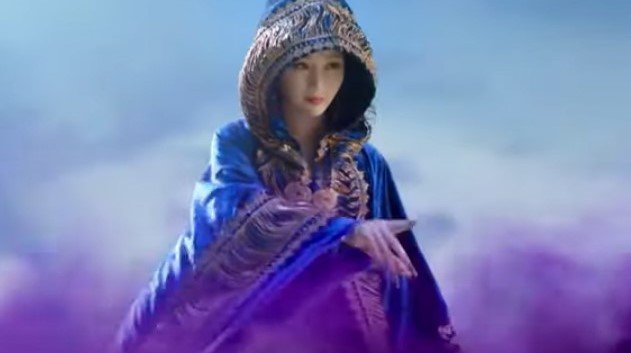 | 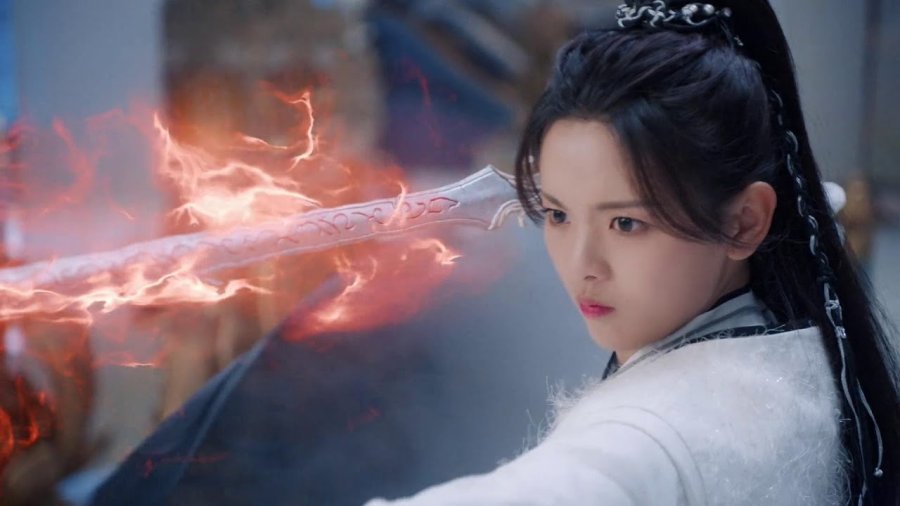 | 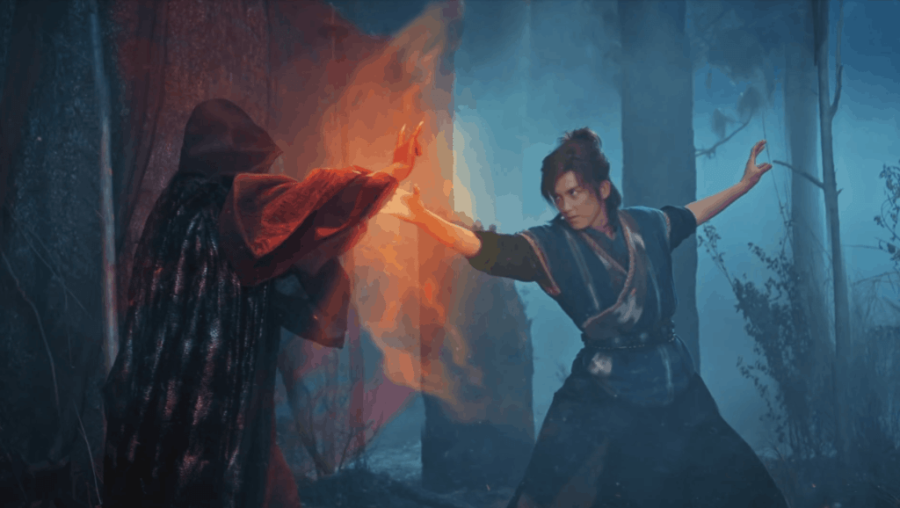 |
Martial Universe | Dance of the Phoenix | Fights Break Sphere |
As said above, the lack of immortals is a reason that defines Xuanhuan dramas. But this does not mean that there are absolutely no gods or goddesses in Xuanhuan works. While there may be gods, most of them achieved this title through years of cultivation, slowly cultivating their power to increase their rank and strength. In The Great Ruler, Luo Yi didn't become a goddess by turning into an immortal through cultivation and ascending to the heavens, but rather by cultivating her power until it reached the amount of power needed to be given this rank. | 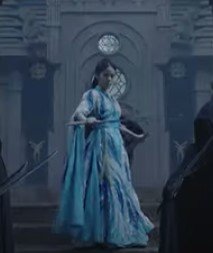 |
Xuanhuan dramas also may have a certain way or ways to cultivate. In Douluo Continent, cultivators are soul masters who increase their power by killing soul beasts. In Fights Break Sphere, cultivators increase the amount of Dou Qi in their bodies to gain rank and power. In Martial Universe, self-cultivation aims towards increasing one's Qi. Some of Tang San's soul rings in Douluo Continent. | 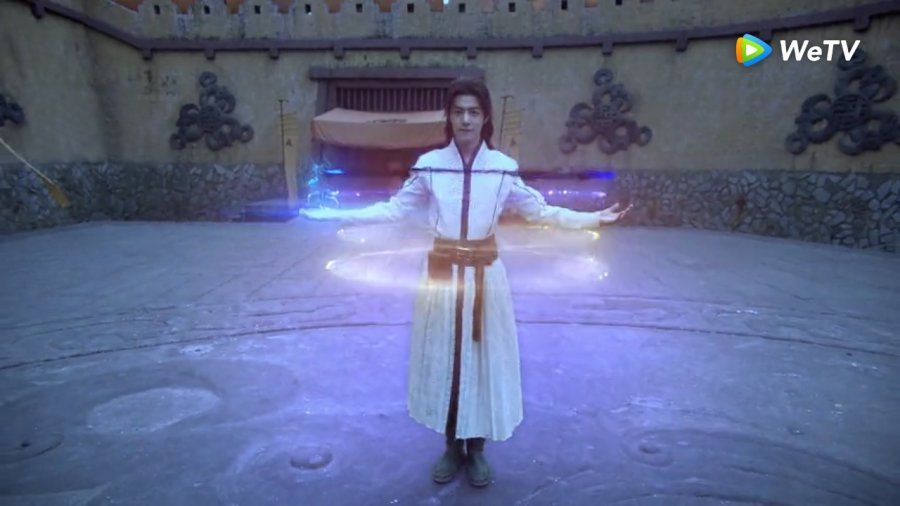 |

Wuxia dramas are known for their martial arts, and so are Xuanhuan dramas. Martial arts, or Kungfu (功夫), is an essential part of Chinese culture and are included in all three included genres, Wuxia, Xianxia, and Xuanhuan.
But although Xuanhuan dramas also have martial artists and sects and may be set in Jiang Hu, or the Pugilistic World, the main difference between Wuxia and Xuanhuan is the lack of magic and spells in Wuxia dramas that many Xuanhuan dramas have. Not only do martial artists in Xuanhuan dramas practice their martial arts skills, but they also improve their cultivation to level up or rank higher, in which some different dramas have their unique ways of ranking.
Martial artists in Xuanhuan dramas have many of the same principles as ones in Wuxia dramas. They may also follow the code of chivalry, which requires heroes (侠) to stand up for what is right, redress wrongs and live with righteousness.
To sum things up: |
Out of these three genres (Wuxia, Xianxia, Xuanhuan), Xuanhuan is the youngest. |
Xuanhuan is a genre with a mix of Wuxia and Xianxia elements, as well as Western influence. |
Most Xuanhuan dramas have martial arts, but cultivators practice other magic and spells as well. |
While Xianxia dramas focus heavily on immortals and Daoism, Daoism is non-existent in Xuanhuan dramas. |
Many Xuanhuan works, not just dramas, use unique ranking systems. |
Here are some Xuanhuan recommendations:
Some of these dramas have donghua adaptations, some of which are very popular in China (and overseas). They are included along with the dramas for future reference. Novels will be provided if Donghuas are not available.
 | 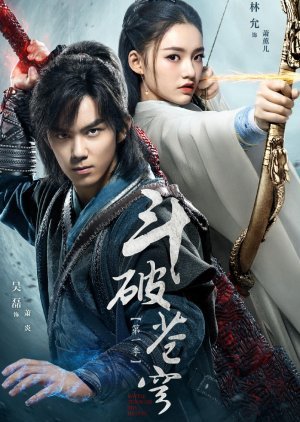 | 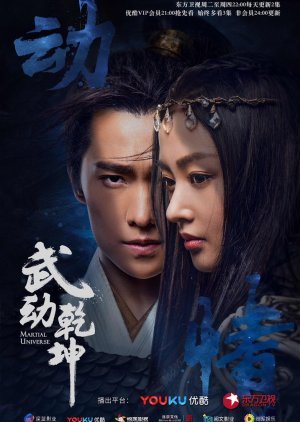 |
Growing up with his blacksmith father, Tang San later goes to Nuoding Academy to fulfill his dream of becoming a soul master. He goes on many adventures with his newly-made friends. Soon, he and his classmates find themselves stuck in a political fight for power. Tang San fights to protect himself, his friends and strives to become a powerful soul master. (Donghua: Soul Land) MDL rating: 8.4 (3, 302 users) | After the death of his mother, Xiao Yan is determined to avenge her death and bring justice back to the pugilistic world. His lack of talent is an embarrassment to his family, but his determined personality says otherwise. With the help of an elder and his friends, he embarks on many journeys, becoming stronger along the way. (Donghua: Battle Through the Heavens) MDL rating: 8.2 (2, 152 users) | Lin Dong is introduced to the art of cultivation through a mysterious seal. He travels from land to land, becoming one of the most respected and powerful cultivators. On his journey, he meets two young women, and they work together to return peace to the land after they discover the Demon Clan's devious scheme to take over the world. (Donghua: Wu Dong Qian Kun) MDL rating: 7.6 (896 users) |
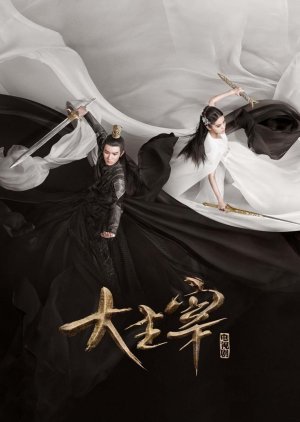 | 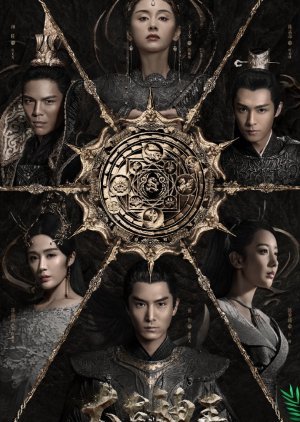 | 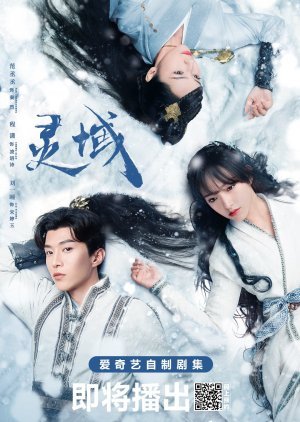 |
The Evil Deity waits for its chance to resurrect as a being. Five thousand years later, it finds its chance and turns into the Nine Evil Eyes. Meanwhile, Mu Chen meets Luo Yi, the goddess of the Luo God Clan. They become friends and work together to fight the Evil Deity, restoring peace to the world and avenging the lives lost. (Donghua: The Grand Lord) MDL rating: 7.6 (531 users) | Qin Wentian is sent to live at the Bai Manor by his adopted parents. He has an arranged marriage with Bai Qiuxue. Unbeknownst to the Qins, the Bai family has their eyes set on a better match for their daughter, but Wentian stands in their way. The Bais plan his assassination, and he flees for his life, taking refuge in Jiuhua Sect, where martial arts masters reside. (Novel: Ancient Godly Monarch) MDL rating: 7.4 (220 users) | Qin Lei, a young man with amnesia, is accidentally involved in a conspiracy. He sets off on a journey to find out his birth and past and makes new friends. With his friends, they travel across the Spirit Realm, learning life lessons all the while improving their cultivation and power. Together, the teenagers help guard the spiritual domain. (Novel: Spirit Realm) MDL rating: 7.8 (533 users) |
Some more Xuanhuan recommendations:
Movies: | Dramas: |
 | 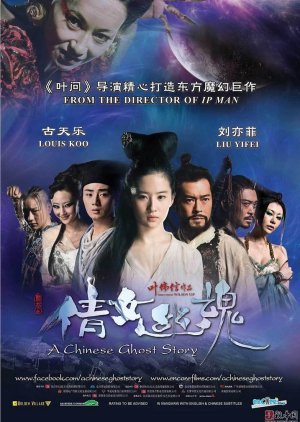 | 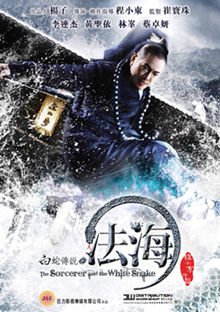 | 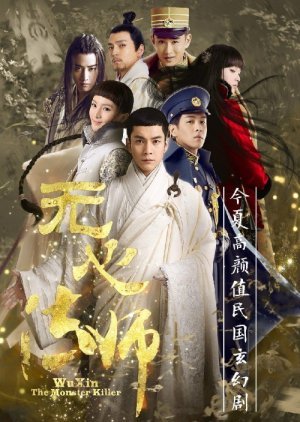 | 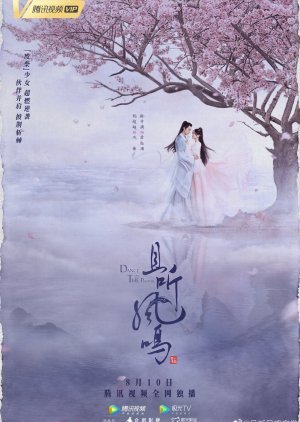 |
Special thanks to @WandereR, @Sam and @Neutralizinq for their help in the search of dramas and movies and a better grasp at Xuanhuan dramas! And thank you to everyone who encouraged me along the way!
These three genres are very difficult to fully grasp, especially Xuanhuan, but you'll start to understand them (and hopefully love them) as you watch more of these works!
I do not own any of the photos/posters used besides the Xuanhuan banners. Some photos are screenshots, while others were found on the internet.
Editor: YW (2nd editor)









